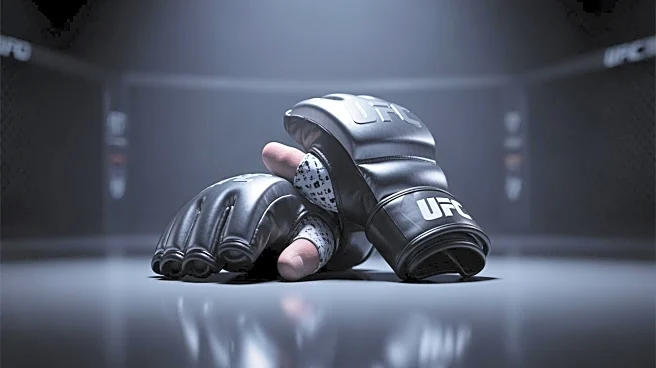What's Happening?
During UFC Fight Night 264, fighter Chris Padilla made an emotional plea for a $50,000 bonus following his performance. Despite his efforts and the emotional appeal, Padilla did not receive the bonus he was hoping for. The event highlighted the intense
competition and the financial pressures faced by fighters in the UFC. Padilla's plea underscores the significance of performance bonuses in the sport, which can be a substantial part of a fighter's income. The event took place amid a series of matches that showcased the skills and determination of various fighters, with Padilla's situation drawing particular attention due to his candid expression of need.
Why It's Important?
The incident involving Chris Padilla at UFC Fight Night 264 highlights the financial challenges faced by many fighters in the UFC. Performance bonuses are a critical component of a fighter's earnings, often making a significant difference in their financial stability. Padilla's emotional plea brings to light the broader issue of compensation in combat sports, where athletes often rely on bonuses to supplement their base pay. This situation may prompt discussions within the UFC and the wider sports community about the financial structures in place for fighters and the potential need for reforms to ensure fair compensation.
What's Next?
Following Chris Padilla's public plea, there may be increased scrutiny on the UFC's bonus system and how it impacts fighters' livelihoods. Stakeholders, including fighters, promoters, and fans, might engage in discussions about the fairness and transparency of bonus allocations. This could lead to potential changes in how bonuses are awarded or even broader discussions about fighter pay in the UFC. The organization may also face pressure to address these concerns to maintain its reputation and ensure the well-being of its athletes.















